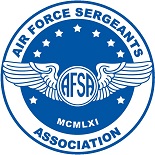|
March 6, 2015 -- The Air Force Sergeants Association, alongside 22 other Veterans Service Organizations, submitted their final letter to the U.S. Senate Armed Services Committee March 6 with their opinions regarding the Military Compensation and Retirement Modernization Commission’s report.
The letter is addressed to Chairman of the Committee on Armed Services John McCain, Chairman of the Personnel Subcommittee of the Committee on Armed Services Lindsey Graham, as well as Ranking Member of the Committee on Armed Services Jack Reed, and Ranking Member of the Personnel Subcommittee Kirsten Gillibrand. Several of the recommendations are supported by the organizations involved, however a further examination is being requested of two significant changes to the current retirement and health care benefits, as well as general nonsupport of other recommendations. The organizations state that there are many unanswered questions in regards to some of the commission’s recommendations, and advises that, “changes of this magnitude be seriously analyzed and studied for any second and third order effects that could be harmful to sustaining the all-volunteer force.” Opinions are given on each of the original 15 recommendations from the MCRMC report. The official letter can be downloaded and read directly below. Group MCRMC Final Recommendations MCRMC Releases ReportJan. 29, 2015 -- The Military Compensation and Retirement Modernization Commission (MCRMC) released its final report Jan. 29. AFSA now begins the arduous process of evaluating their recommendations so we can advise lawmakers and the Administration of their potential impact on the All-Volunteer Force.
The National Defense Authorization Act for Fiscal Year 2013 established the commission to review military compensation and retirement programs and make recommendations for their modernization to the President and Congress. The commission’s stated purpose were to ensure the long-term health of the all-volunteer force, provide for a high quality-of-life for the members of the Uniformed Forces and their families, and make sure that the compensation and retirement programs are financially sustainable. 15 RecommendationsThe Commission made a total of 15 recommendations which we have summarized as follows:
1. Replace the existing pay and retirement system for future service members with a blended plan consisting of direct pay, thrift savings and continuation pays. Current service members would be allowed to opt-in but participation is not mandatory. 2. Offer an additional way for military members to provide for their survivors (self-funded). 3. Provide financial literacy training for service members at various points throughout their careers. 4. Consolidate 30 Reserve component statuses in to six broader areas. 5. Create a new, joint readiness command which would, among other things, oversee military healthcare programs. 6. Eliminate TRICARE and replace with a Federal Employee Health Benefits Plan Program for active duty family members, military retirees under age 65, their dependents and survivors. TRICARE for Life would remain unchanged. 7. Improve support for service members with special needs family members by aligning services offered through Extended Care Health Option to match Medicare waiver options. 8. Improve cooperation between DoD and VA. 9. Consolidate base exchanges and commissaries into a single retail entity. 10. Improve access to Child Care on military installations. 11. Eliminate the Active Duty MGIB and Reserve Education Assistance Program (REAP), restrict Post 9/11 GI Bill transferability of benefit options to members with at least 10 years of service, apply an active duty service commitment if they do and eliminate the housing stipend for family members. 12. Improve transition counseling, job hunting assistance for separating service members. 13. Ensure service members can receive financial assistance to meet their families’ nutritional needs. 14. Expand Space A travel to dependents when a service member is deployed for 30 or more days. 15. Implement a national military student identifier to help track the impact of military life on military children. You can view the report in its entirety www.mcrmc.gov or download the report below.
|
How We See It
| ||||||
- Home
-
About Us
- Join AFSA
-
NEWS
- Veteran Affairs News
- TRICARE Information
- Subscribe to AFSA Magazine
-
AFSA Magazine
>
- AFSA CMSAF Special Edition
- AFSA Winter 2024
- AFSA Fall 2023 Magazine
- AFSA Summer 2023 Magazine
- AFSA SPECIAL EDITION 8-1-23
- AFSA Spring 2023 Magazine
- AFSA Winter 2023 Magazine
- AFSA Fall 2022 Magazine
- AFSA Summer 2022 Magazine
- AFSA Spring 2022 Magazine
- AFSA Magazine Winter 21-2022
- AFSA Magazine Fall 2021
- AFSA Magazine Summer 2021
- AFSA Magazine Spring 2021
- AFSA Magazine Winter 2021
- AFSA Magazine Fall 2020
- AFSA Magazine Summer 2020
- AFSA Magazine Spring 2020
- AFSA Winter Magazine 2020
- AFSA Fall Magazine 2019
- AFSA Summer Magazine 2019
- AFSA Spring Magazine 2019
- AFSA Winter Magazine 2019
- AFSA Magazine Fall 2018
- AFSA Magazine Spring 2018
- AFSA Magazine Summer 2018
- AFSA PUBLICATIONS >
- PODCAST - AFSAPEDS22
- Videos
- LEGISLATION
-
Member Benefits
- AFSA Insurance
- USAA - Auto and Banking
- AFSA/PCI Oral History Project
- Vietnam Veterans Commemoration
- Homes for Heroes
- Membership Information
- Shop AFSA
- Apply for Scholarships >
- EdConnect >
- Preferred Learning Partners >
- JROTC and CAP Awards
- Clear2Connect
- Military Family Resources
- Suicide Prevention
- Disabled Vet Student Loan Help
- Transition Support and Services >
- Debt Destroyer Program
- Financial Literacy
- K9s for Warriors
- Chapter Corner
- AFSA SUMMIT 24
- Members LogIn
Apply for Scholarships |
Take Action |
Be InformedRead the AFSA Magazine
Subscribe to the AFSA E-Newsletter Subscribe to the Weekly Military & Government Brief |

